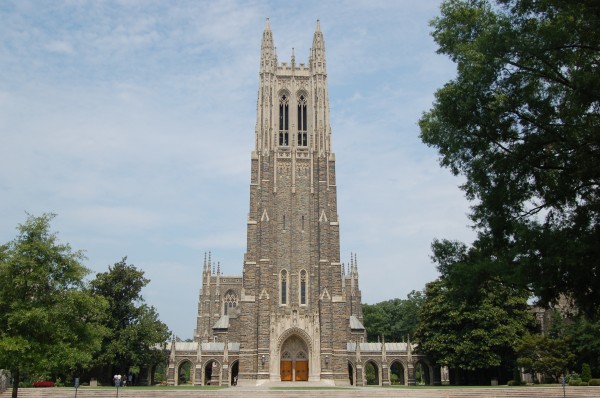Muslim Prayer in Colleges
February 2, 2015

When Duke University reversed its decision to publicly announce the Muslim call to prayer every Friday across their campus, it sparked much debate about whether or not an intellectual institution should be trying to foster religious tolerance among students in this way, and whether or not they should have stuck with their original decision. Both the Imam and the Director of Islamic Studies at Duke were disappointed in the university’s decision, which seems to have been spurred by various outraged calls and threats that the university received when the plans were still in place. Though their decision to reverse plans that were in the making since the fall semester appears to be a weak one, it was the right course of action.
I believe that Duke’s decision in this matter was correct particularly because of the question of school safety. Though the plans were neither suggested nor approved during the time of the extremist attacks in France, the fact remains that within the past month, terrorists have been more and more active, and have been obtaining higher levels of publicity for their crimes. CNN reports that the school claims to have received an abundance of “pretty loud and nasty” vocal and email responses since their announcement of the plan’s approval, and it was noted that the FBI branch in the area was alerted and involved. It is unclear how serious the calls were, so it would be unfair to judge the school and call their actions weak or unfounded without studying the complete evidence. Also, rather than looking at their decision as favoring non-Muslim groups over Muslim ones, I choose to see Duke’s decision as one of caution, to protect the safety of all of their students. This seems to be the fairest side to take for all parties concerned because the ultimate goal of the university’s decision to announce the call to prayer was to foster feelings of unity and acceptance on campus.
Duke’s initial decision to publicly sound the call to prayer was well conceived, and it would have taken great strides to making life on campus more inclusive to students who identify with Islam and Islamic culture. But since the plan was unsuccessful, I feel that the best course of action for Duke and other universities looking to enrich the unity among their students would be a push for more diversified education. When looking at how the average non-Muslim American forms their opinion on Muslim communities, negative associations and thoughts arise subconsciously. This is because when people are unfamiliar with religions that they do not practice, their opinions are more influenced by negative media perceptions or famous extremist groups. Ultimately, people are unable to form their own opinions concerning Islamic culture because they do not have enough unbiased, factual and straightforward information available to consider.
Luckily, a more balanced religious education is very feasible at higher education institutions such as Duke, and even here at Fordham. Both schools have already established Islamic studies classes and departments, whether independent or part of a larger religious studies curriculum. On our campus, there are many possibilities for increased Islamic education. Students should be more encouraged or required to take classes on Islamic texts or Islamic culture. More events should be organized through student groups and staff to make Islamic culture more accessible to non-Muslims. There could even be a day when all religious groups are celebrated and explored and perhaps this could be a time for recognizing similarities between different faiths and cultures that often feel so alienated from one another.
When fostering unity on a college campus, the intellectual curiosity of students should be seen as a resource. Only through an expanded education can people really start to create informed opinions about others who at first glance seem so different from themselves.








